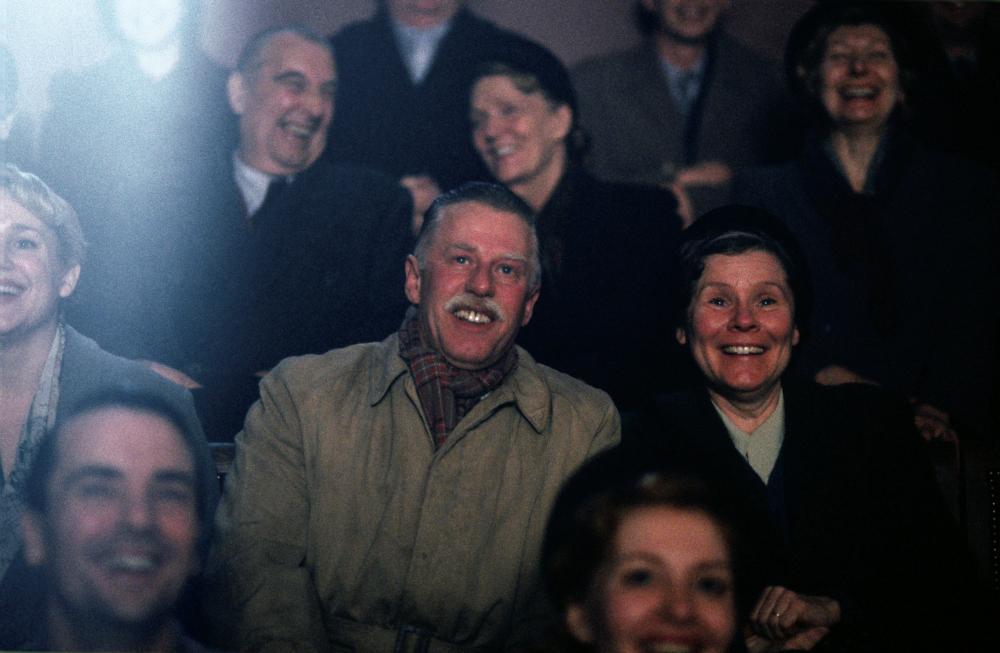by Eric Blume

Mike Leigh nabbed his second Best Director nomination and his third Original Screenplay nomination with his 2004 film Vera Drake (he has yet to win any Oscars despite seven nominations across those two categories). Imelda Staunton scored an Actress nod as well for this tale of the vibrant eponymous character who “helps girls out” as part of her many job and family responsibilities. Her actions carry a brutal cost, and the film still carries incredible power.
Fourteen years later, Vera Drake has aged beautifully, perhaps in part because Leigh has structured and staged it in a classical framework...
 With very few changes it could be on stage as a play, but visually he evokes the British working class films of the 1950s and 60s. (I hadn’t seen the film upon its release, so when Nathaniel asked us to write about Mike Leigh I requested this film to fill in the gap.)
With very few changes it could be on stage as a play, but visually he evokes the British working class films of the 1950s and 60s. (I hadn’t seen the film upon its release, so when Nathaniel asked us to write about Mike Leigh I requested this film to fill in the gap.)
Leigh packs an astonishing amount of detail in the first hour of the film, canvassing well over fifteen characters to build a wider tapestry around Vera. He gives us a deeply loving family, specific in its own sweet, weird ways, and a host of vivid supporting players who serve as a part of Vera’s work world. Everyone pops, and you’re acutely aware of each character’s financial and social position. Vera Drake is clearly focused on class issues, the options of the privileged, how their advantages form their morality, and how people react when that morality is challenged.
Leigh captures the 50s milieu with effortless subtlety, which somehow gives his movie a remarkably timeless quality; it’s both rooted in but transcends its time period. Leigh’s palette here might be drab on the color spectrum, but it provides a deeply textured environment and has its own strange allure. The film feels less improvised than some of his others, but evidently none of the actors knew the subject of the film while performing. It has the patented Leigh immediacy coming from every actor you see.

But Vera Drake's power would be unimaginable without Imelda Staunton. She’s fully immersed in this character, the sunny caregiver of everyone, and there’s not a single false note. You believe she scrubs floors, polishes brass, and soothes all around with a cup of tea. Her scenes where she carries out the procedure are no-nonsense, and you have no trouble understanding why she’s innately trusted with these discreet crises. Staunton’s vitality proves to be intensely meaningful in the second half of the film, when it’s stripped from her. Leigh and Staunton nail the complexity of someone ironically on trial for their innate goodness and selfless instincts, without sainting the character or the situation.
You’re left in the flm’s last act with the sting of how average, simple, good people are far more complex than you might originally think. We shoehorn people into into roles to meet our own needs and expectations. Leigh’s film is about facing the full truth, even in Vera’s case: Leigh keeps his camera tight on Staunton’s face, as it crumbles with the full weight of understanding. It’s an unmissable film where Leigh’s love of his actors remains front and center in that special inimitable way of his.
 Imelda and Leigh with their Venice Film Festival awards for VERA DRAKE (2004)
Imelda and Leigh with their Venice Film Festival awards for VERA DRAKE (2004)
Previously...
The surprising prescience of Happy Go Lucky
Topsy-Turvy's portrait of British imperial excess